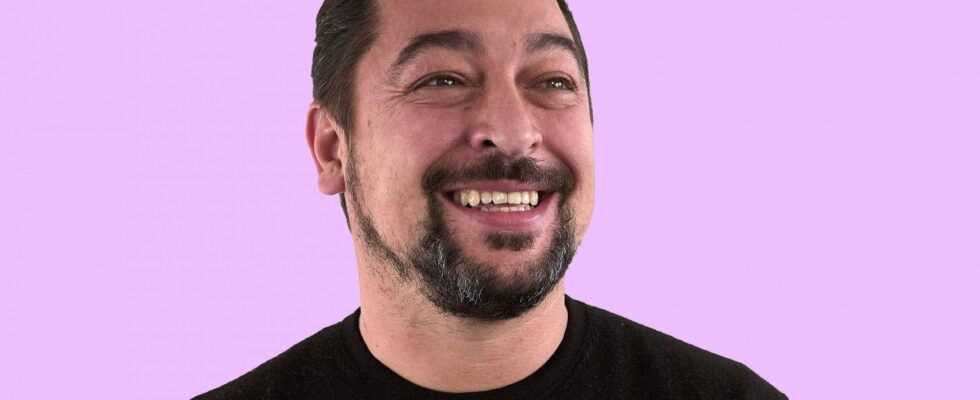The start-up license.rocks has already won several competitions, including the Berlin Deep Tech Award 2020. The blockchain start-up has focused on the field of licensing. They started making software licenses tradable and have now been concentrating on the license management of non-fungible tokens (NFT) for some time. How sustainable the NFT hype is, why musicians in particular can benefit from NFT and why the Ethereum Blockchain doesn’t have to be the first choice when it comes to creating NFT.
This interview first appeared in the June issue of Cryptocompass, the magazine for everything to do with blockchain. Do you want to know more about it? Then click on this button:
BTC-ECHO: You started trading software licenses and are now offering white label solutions for NFT creation. Can you briefly explain to us how it came about and what exactly is it about?
Daud Zulfacar: Our vision has always been to offer usage rights for all digital goods. In the course of the Corona crisis, however, we reconsidered the model. We realized that our first solution is not suitable for every digital good. We have concentrated on a completely new, entire product suite for everything to do with NFT. We did a lot of different interviews and found that the areas of music and art are most exciting in the NFT area.
BTC-ECHO: Hand on heart: Aren’t we in an NFT bubble in which numerous digital works of art are being traded at far too high prices?
Daud Zulfacar: We are in an absolute bubble in terms of NFT. The problem is, NFTs are not a regulated market and it’s relatively easy to drive prices up. As long as there are buyers who believe they can find someone to buy their NFT for a higher price, prices will go up.
The legal position of NFT
BTC-ECHO: You are license specialists: What about the legal situation of NFT? As an NFT owner or buyer, how confident can I be that my property rights will be protected?
Daud Zulfacar: For example, copyrights cannot be transferred. Only usage rights, which must also be precisely defined, can be acquired. In almost all NFTs there is absolutely nothing in this regard. One can assume that this is only a private right of use. But it has to be said that a large part of the NFT in the music sector only operate in the private sector. After all, the final legal framework has not yet been conclusively clarified. But we always prepare everything so that what is legally possible is implemented and try everything to be well prepared for the legal future.
BTC-ECHO: On your homepage you speak of “License as a Token”. Can you please explain that?
Daud Zulfacar: We take different approaches: A license consists of a technical, a commercial and a legal component. In the digital age it should all be somehow summarized and an NFT is the optimal medium for us. In the technical area, this can be thought of as an access token. The legal area is about attaching one or the other contract to the token. The commercial sector is about payments – more precisely, micro payments, which work well with cryptocurrencies.
The use cases from NFT
BTC-ECHO: What is the biggest use case of NFT for you?
Daud Zulfacar: NFT are representatives of all kinds of products that are unique. Therefore there are countless use cases. NFT can even be used for special components, such as machines, where the production path must be traceable later. Otherwise, of course, the use cases are mainly in copyright law. Keyword: Creator Economy. NFT would be perfect here to give solo self-employed people a new way of generating income.
BTC-ECHO: Together with the music agency Roba you tokenized the new album by rappers Kay One and Stad Ova as NFT. What was it about, what are the benefits of the NFT campaign?
Daud Zulfacar: Whoever buys the NFT acquires more than the piece of music. This gives the buyer an opportunity to interact with the artist himself. That said, Kay One offered, among other things, a barbecue for one of the NFT buyers who bought by May 30th. The winner will then be determined by drawing lots. Ideally, NFTs should also offer added value that is otherwise not freely available on the market. This can be a backstage pass or participation in a music video.
Ethereum as the basis of NFT
BTC-ECHO: How do you rate the Ethereum blockchain as the basis for NFT tokens or what do you think of alternatives like the Flow Blockchain from Dapper Labs?
Daud Zulfacar: Flow, Tezos and Algorand also offer NFT. But this is mainly due to the fact that we are currently in a hype phase. However, NFT have the longest tradition on Ethereum. Since 2017 at the latest, we have been observing the crypto art collectibles area, which have made a significant contribution to the current NFT hype – this movement came from the Ethereum corner. In addition, Ethereum has the community and the necessary ecosystem to expand its market position in NFT matters.
BTC-ECHO: Where do you want your journey to go in the near future?
Daud Zulfacar: My wish is that we grow more and more and take experience with us. In the end, it should be some kind of niche community for license.rocks arise. I would also like to see our software completely open source so that everyone can participate. To do this, however, you need really good token engineering, unfortunately we are not that far yet.
